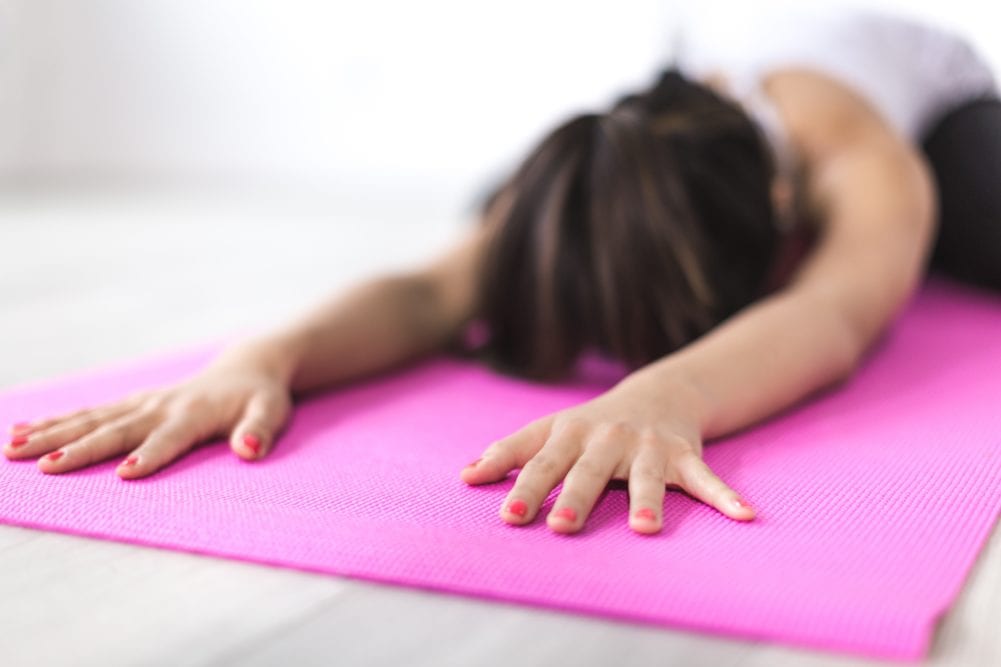Your cart is currently empty!
Fitness + Stress Management

It’s no secret that physical and mental wellness go hand-in-hand and, in fact, can often be a direct reflection of one to the other. For example: anxiety can manifest in insomnia; depression can show as a lack of energy and the desire to sleep often. When it comes to stress, the toll can also be reflected by the body in aches and pains, insomnia or hypersomnia, digestive issues, etc.
One outlet for managing stress is exercise. The type and intensity will vary from person to person depending on physical and emotional abilities. Any amount you do should be celebrated no matter how small or big. The hardest challenge is showing up- so if you get that far, congratulations! That is enormous and you should be proud.
The Mayo Clinic recommends 2.5 hours of moderate aerobic activity per week for healthy adults. This can include brisk walking, yard work like mowing the lawn or shoveling snow, cycling, running, or whatever your fav sport or physical activity include. 2.5 hours per week may feel daunting depending on your schedule and lifestyle. It’s important to remember that not all that time needs to be done at once. For example, you could do 30 minutes of activity 5 days a week or stretch that 30 minutes down into blocks of two 15-minute sessions a day.
Some of that activity may already be part of your lifestyle. If you take public transportation, you may need to walk (or run from the cold of winter!) to your destination. Boom! There’s activity right there. Carrying loads of laundry up and down the stairs? There’s another one! Chasing after kids? That takes a lot of energy! As the Mayo Clinic says, “Even brief bouts of activity offer benefits. For instance, if you can’t fit in one 30-minute walk during the day, try a few five-minute walks instead. Any activity is better than none at all. What’s most important is making regular physical activity part of your lifestyle.”

Be kind to yourself. Progress is better than perfection in most aspects of life and fitness is no different.
How does fitness specifically help with stress management? ACSM’s Health & Fitness Journal shares this insight: “Human and animal research indicates that being physically active improves the way the body handles stress because of changes in the hormone responses, and that exercise affects neurotransmitters in the brain such as dopamine and serotonin that affect mood and behaviors. In addition to the possible physiological mechanisms, there also is the possibility that exercise serves as a time-out or break from one’s stressors.”
A break from one’s stressors is an enormous positive and a great reason to engage in physical activity. Exercise and fitness are often tied into shame-centric body imagery, weight loss, etc, but it does not have to be that way. It can be a way of celebrating what your body is capable of that day and in that moment. It can be a tool to reconnect to and support your body. Gentle physical activity such as yoga or Tai Chi can help you to touch base with your body while having a time-out from stressors.

Adding herbs to your wellness regime is another excellent tool for stress management. Ashwagandha has been used in Ayurvedic medicine for thousands of years to reduce stress and increase energy levels. Rhodiola can also decrease stress and reduce fatigue. Maca can be used for chronic fatigue syndrome and give an energy boost before activity (think of it as an herbal replacement for coffee). You can find out more about these adaptogenic herbs here. If you are taking prescribed medication, it is always important to find out if herbs will work alongside them.
Next week we will be discussing meditation which is another excellent way to manage stress!
Written by Holly Pluchinski, Certified Yoga Instructor, Owner of Kayfabe Yoga, and Huna Operations Assistant.
References:
Laskowski, Edward R., M.D. (2018, December 14). “How much should the average adult exercise everyday?” Retrieved from https://www.mayoclinic.org/healthy-lifestyle/fitness/expert-answers/exercise/faq-20057916
Jackson, Erica M., Ph.D. (2013, May/June). Stress Relief: The Role of Exercise in Stress Management. Retrieved from https://journals.lww.com/acsm-healthfitness/fulltext/2013/05000/STRESS_RELIEF__The_Role_of_Exercise_in_Stress.6.aspx
- Huna Internal Beauty: Healthy Skin, From the Inside-Out - December 5, 2019
- My Personal Journey with Eczema - October 23, 2019
- Ingredient Spotlight: Calendula Officinalis - October 17, 2019


